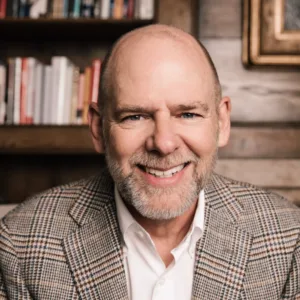- Change
- August 18, 2023
- Mark Miller
Champion the Culture
Scale is an interesting challenge. It is the aim of countless organizations, but real scale is hard to achieve – not as unlikely as finding a unicorn, but really hard to do well. My perspective on this topic is limited: I worked for one organization for more than 44 years.

Scale is an interesting challenge. It is the aim of countless organizations, but real scale is hard to achieve – not as unlikely as finding a unicorn, but really hard to do well. My perspective on this topic is limited: I worked for one organization for more than 44 years. Now, we had grown from about $150 million to almost $20 billion during that span, but I’m convinced scaling assets is not nearly the challenge as scaling a culture. This is something that was worked on daily.
What is a Culture?
My working definition for decades has been the same: the collective habits of the people, not the aspirations of leadership. However, I do believe leaders can change a culture and this can certainly include aspirational elements, but a culture is what people actually do with a high degree of predictability.
Here’s a tangible example. One of the elements of Chick-fil-A is that when someone says, “Thank you,” the response is, “My pleasure.” No, they’re not perfect and they’re not robots – it doesn’t happen every time. But it happens a lot, millions of times every day. Why would I say this is part of their culture? Because it actually happens. It’s not because they want people to say “My pleasure”– it is only part of the culture because people say it with great consistency.
You may be wondering, what’s the point? Before I answer the question, please don’t miss the magnitude of this achievement. The independent restaurant operators employ about 100,000 people, and the majority of them are under the age of 20. So, to have tens of thousands of young people saying “My pleasure” is really hard to accomplish — not to mention employee turnover. But, the really hard part is important. If you want to scale your culture across districts, divisions, states, territories, and even the globe, prepare yourself – it is really hard to do.
Here are a few ideas on how you can increase your chances of scaling your culture . . .
Be Clear – What are the key elements of your culture? How could you institutionalize these attributes? If life-long learning is a cultural norm, you could require everyone to have a personal development plan. Make no mistake, vagueness will scale and when it does, you have nothing but vagueness. Are you clear on the elements of your culture that matter most? Are you clear on the actions that can foster scale?
Be Selective – You can’t scale everything. I believe attempts to do so quickly look like micro-management. In his book, The Power of Habit, Charles Duhigg talks about the power of keystone habits – those habitual behaviors that have a ripple effect. Work to discover these for your culture.
Be Accountable – If you want to scale a certain behavior, determine how you’ll measure your progress. And by measure, I mean real numbers, not approximations or estimates. If you want people to say, “My pleasure,” find a way to measure it.
Be Relentless – There is a video of the Chick-fil-A founder asking, reminding, and telling people, “The appropriate response when someone says thank you is … what?” Employees practiced saying “My pleasure” in groups as large as 5,000 people. The interesting thing about the video – it was pieced together from clips over a ten-year period! What are you relentlessly and tirelessly communicating regarding your culture?
Culture is powerful – so powerful, Peter Drucker once said that “culture eats strategy for breakfast.” If this is true, don’t you want to be the one creating the culture?
“Culture eats strategy for breakfast.” Peter Drucker
Comments on Champion the Culture

Mark Miller
Mark Miller is a Wall Street Journal and international best-selling author, communicator, and the former Vice President of High Performance Leadership at Chick-fil-A. Mark’s leadership journey at Chick-fil-A spanned 45 years, and today, he serves as the Co-Founder of Lead Every Day. Mark began writing almost twenty years ago, and with over one million books in print in more than twenty-five languages, his global impact continues to grow.